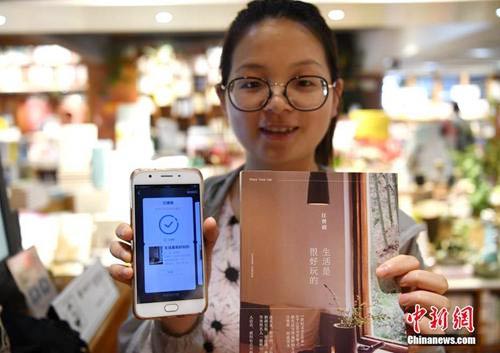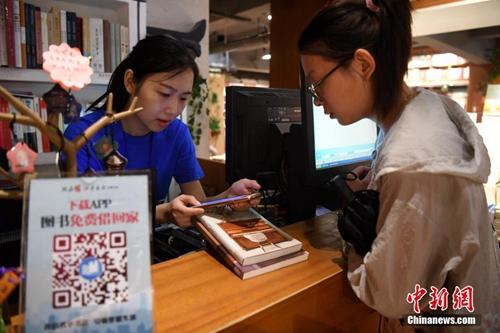Sharing economy turns new page with books
By Bi Nan | chinadaily.com.cn | Updated: 2017-11-23 15:19

From sharing bicycle to sharing car, China's sharing economy has now swept into the book industry. Alipay, an online payment platform under Alibaba, has launched express delivery of borrowing books and sharing bookshelf services in five cities earlier this year, according to Chinanews.com.
Sanxiaokou Xinhua Bookstore in Hefei city of Anhui province, which declared itself as the "first sharing bookstore in the world", opened to the public in July this year. The reader has to download an app and pay 99 yuan ($15) online as deposit, then he can borrow two books with a total value of less than 150 yuan by scanning the QR code. If the reader returns the books within 10 days, it will be free of charge, or one yuan will be charged for each day after expiration.
Besides, the bookstore also has "reading scholarship", with the registered customers receiving one yuan reward each time if they return books on schedule. If the customer reads 12 books in three months, he will be returned 8 percent of the deposit money as reward. During the first month of the bookstore's operation, the number of books being borrowed and returned reached nearly 80,000.

In addition, banks are also involved in the sharing economy, with two branches of China Everbright Bank in Beijing opening book borrowing services this year. Users can borrow books after registering through the official WeChat account and paying the deposit.
"Whether through selling books, sharing books or some other way, as long as books are being read, they have achieved their values. Culture can be delivered in different forms," said a woman surnamed Huang, who is a book-lover and likes the sharing book mode. "Compared with borrowing books from libraries, the large bookstores update their shelves more frequently and are more professional, so readers can enjoy their favorite books more easily."
"On the other hand, some books are quite expensive and readers might wish to only look up a few things without paying the full price. Then sharing book system can easily solve this problem," Huang added.

However, there is still no specific definition of "sharing book", and many problems need to be resolved in the actual operation.
Some experts claim that some alleged "sharing book" mode is just a gimmick, the same stuff with a new label.
San Shi, a writer, publisher and publishing marketing expert, thinks that, from the perspective of business mode, the nowadays "sharing book" is no difference with book borrowing service of some small bookstores that already existed long before. "As many public libraries are free of charge to borrow books, while the 'sharing bookstore' has deposit and fine system, then the 'sharing' can't be correctly defined here."
"Some people claim that, the 'sharing bookstore' is only a concept, just like the previous 'flowing bookstall' on the street, which can also be labeled as 'sharing'."
For "sharing bookstore", the most important thing is to make sure that it is profitable. Huang said that bookstore is not library, so only by making sure its profitability can "sharing book" better developed. Huang suggested that more services could be added for "sharing bookstores", such as customized book selection, improving the dining and environment of the bookstores.
San Shi believes that "sharing book" or "sharing bookstore" is a new business attempt in the book industry and the public should give it a chance. "It is a long way to go, for 'sharing book' and 'sharing bookstore'."
























